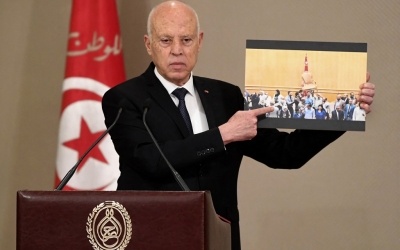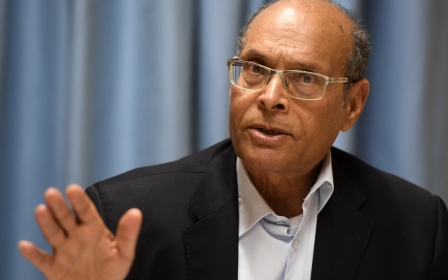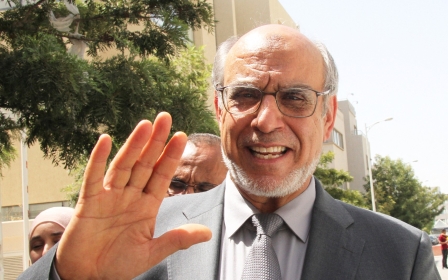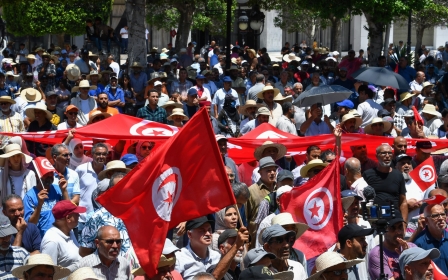Tunisia's proposed constitution possible threat to democracy, says union
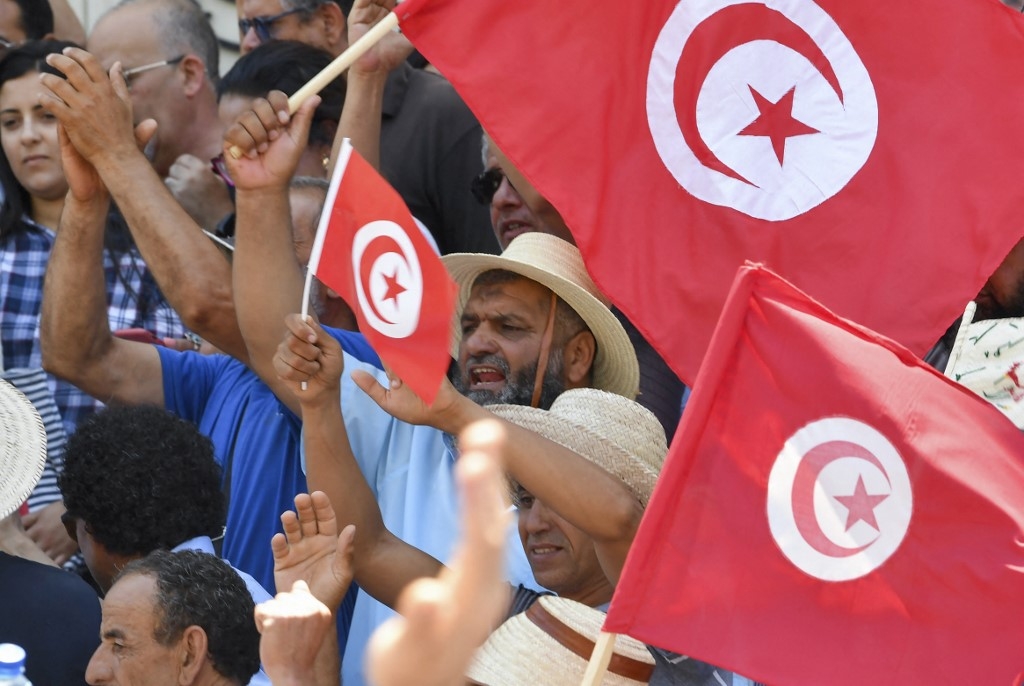
A proposed constitution that includes broad powers for Tunisia's president and a reduced role for other bodies and institutions could threaten democracy, the head of the powerful UGTT union said on Saturday.
But the union, a major political force with more than one million members, said it would allow its members the freedom to vote as they choose on the constitution proposed by President Kais Saied.
Voters will be asked to approve the constitution in a 25 July referendum.
Saied has ruled by decree since last summer, when he brushed aside parliament and the democratic 2014 constitution in a step his foes called a coup, moving towards one-man rule and vowing to remake the political system.
Whereas the 2014 charter was written by a constituent assembly elected in the wake of the revolution, Saied’s draft has been worked on by a committee he handpicked in a process decried by many politicians and constitutional experts as undemocratic.
“If adopted, the constitution would give the president unrestricted, unchecked powers, and would drastically limit the competencies of other branches of the state, including the parliament and the judiciary,” said Said Benarbia, MENA regional director at the Geneva-based International Commission of Jurists.
“The drafting process was devoid of any legal basis, democratic legitimacy, inclusivity, accountability and transparency - behind closed doors, an illegitimate committee drafted a constitution that does not reflect the views of all Tunisians.”
The UGTT said the proposed constitution preserved chapters related to freedoms and rights, but that some restrictions and the absence of guarantees could threaten these freedoms and rights and offer an opportunity to violate them.
Ultimate authority
The draft constitution published in the official gazette would bring most political power under Saied, giving him ultimate authority over the government and judiciary.
Previously, political power was more directly exercised by parliament, which took the lead role in appointing the government and approving legislation.
Under the proposed new constitution, the government would answer to the president and not to parliament, though the chamber could withdraw confidence from the government with a two-thirds majority.
Saied would be allowed to present draft laws, have sole responsibility for proposing treaties and drafting state budgets, appoint or remove government ministers and appoint judges.
Since his power grab, Saied has imposed numerous controversial measures including suspending parliament, shutting down the country's independent anti-corruption body, and sidelining the national election authority.
In early February, he dissolved the Supreme Judicial Council and granted himself control over the selection and promotion of judges.
The measures, the plans for which were first revealed by MEE, have been widely considered a setback for the pro-democracy revolution of 2011.
But the president says his actions were both legal and necessary to save Tunisia from an "imminent threat".
A 'theocratic' state?
While Saied has focused on restructuring Tunisian politics, a looming economic crisis threatens to unravel his plans, as the government struggles to finance its 2022 deficit and repay its debts. It is also in talks with the International Monetary Fund to secure a loan to save the government from default.
Saied’s critics predict the new constitution will pave the way for legitimising his power grab.
“The proposed constitution does not lay the foundations for the rule of law, it codifies one-man rule and effectively ends any semblance of separation of powers, thus endangering rights’ protections in Tunisia,” Benarbia told MEE.
Despite recent controversial comments by the head of the constitutional drafting committee, Sadeq Belaid, that the new constitution would remove all references to Islam, the new draft adds more references.
'Aside from the theological role of the state, defining the Tunisian "nation" as a part of the Islamic ummah can have serious implications for the remaining religious minorities'
- Mohamed-Dhia Hammami, Tunisian political analyst
It amended the first article to remove the reference to Islam as “the religion of the state” but also scrapped article two which defined the state as “civil”, a word commonly use as a synonym for "secular" in the region.
Article five of the new draft states: “Tunisia is part of the Islamic ummah (worldwide community), and only the state shall work to implement the Maqased (principles of sharia) of Islam in preserving life, honour, money, religion, and freedom.”
Commenting on the article, Mohamed-Dhia Hammami, a Tunisian political analyst, described it as a “theocratic” provision.
“For the first time in the country's post-colonial history, liberties are directly tied up to sharia,” he wrote on Twitter.
“Article five refers explicitly to a specific Islamic legal doctrine from the 12th-14th centuries revived in the 20th century. It claims to be less orthodox than the mainstream jurisprudence,” he said.
“Aside from the theological role of the state, defining the Tunisian 'nation' as a part of the Islamic ummah can have serious implications for the remaining religious minorities.”
Saied has said the draft "is not final, and some sections may be revised or given further thought. Whether the system is presidential or parliamentary is not the question", he said last month.
"What counts is that the people have sovereignty. There's the legislative function, the executive function, and the judicial function, and separation between them."
Middle East Eye propose une couverture et une analyse indépendantes et incomparables du Moyen-Orient, de l’Afrique du Nord et d’autres régions du monde. Pour en savoir plus sur la reprise de ce contenu et les frais qui s’appliquent, veuillez remplir ce formulaire [en anglais]. Pour en savoir plus sur MEE, cliquez ici [en anglais].


